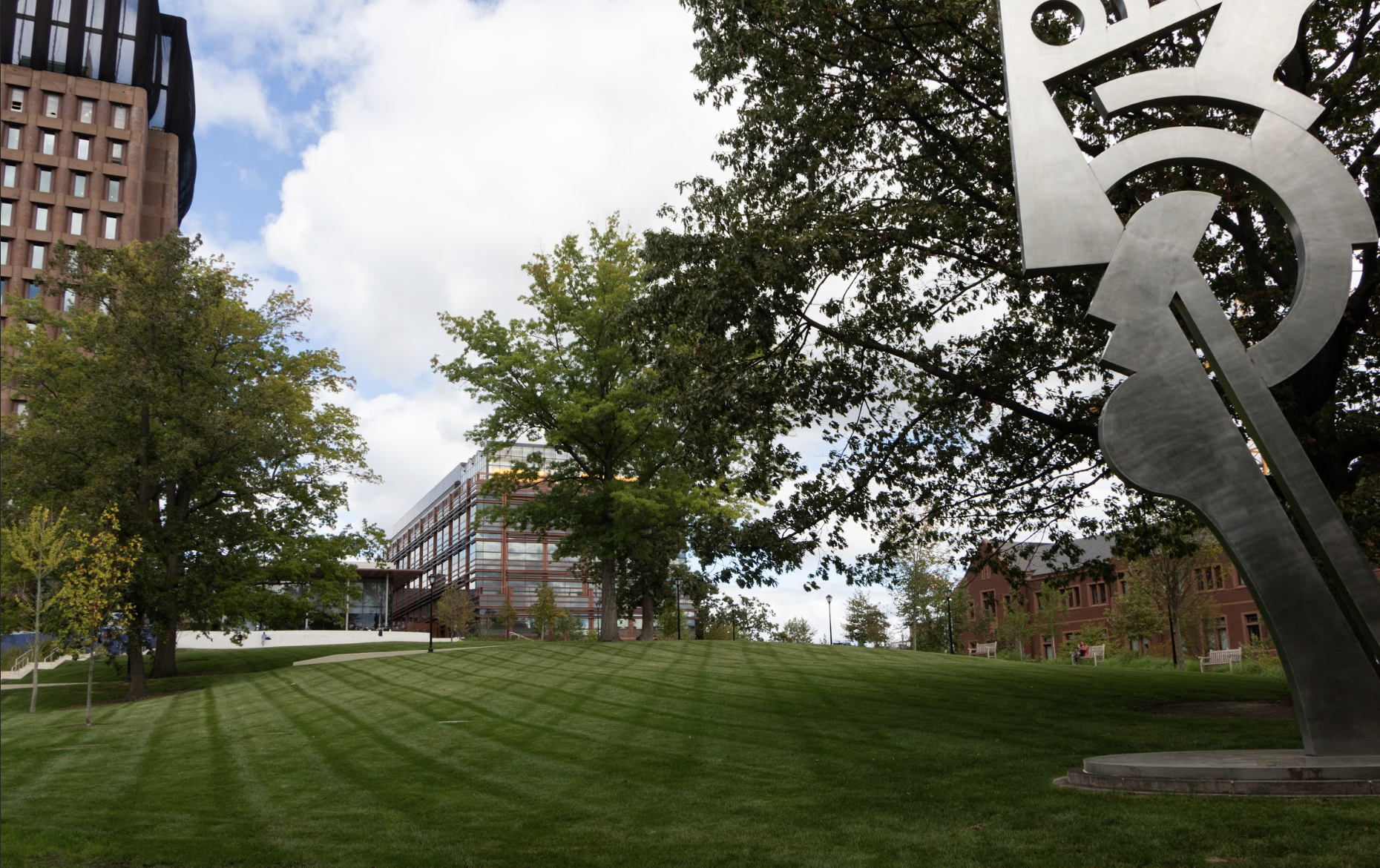Yale pandemic research loses federal funding
Amid federal rollback of pandemic-related funding, Yale researchers warn of long-term consequences for public health and pandemic preparedness.

Zoe Berg
On the morning of March 26, Dr. Craig Wilen opened an email to learn that his lab’s federal funding was being terminated — effective immediately.
The School of Medicine immunologist has been working on antiviral drug discovery for emerging pathogens through a National Institutes of Health grant. Although his project was not directly focused on COVID-19, it was swept up in a broader termination of pandemic-related grants.
Wilen was one of the researchers affected by a recent wave of COVID-19 federal funding cuts. Now, with experiments suspended and hiring frozen, Wilen is left with questions — not only about his own lab’s future, but also about the reliability of federal scientific funding itself.
“It’s not just the loss of money,” Wilen told the News. “It’s the uncertainty. If these grants can be canceled overnight without a clear rationale, how are we supposed to plan or invest in pandemic preparedness?”
In internal documents obtained by Nature, the NIH cited the end of the public health emergency as justification for rescinding pandemic-era research grants, stating that they were “no longer necessary.”
However, faculty at Yale say the move is premature — and potentially harmful to national health preparedness.
“COVID is not over,” said Dr. Sandy Chang ’88, former dean of STEM education and professor of laboratory medicine. “There’s still a significant number of people dying. These cuts are just going to cost additional lives.”
While much of the public has returned to pre-pandemic routines, Yale researchers emphasize that the need for continued research remains urgent. Several labs at the university continue to investigate long COVID, vaccine efficacy and transmission prevention — research heavily reliant on sustained NIH support.
Though his own research is not COVID-related, Chang said the broader funding slowdown has already disrupted the review timeline for grants like his. Chang submitted a grant proposal in January, which he said has still not been assigned a study section.
“Lots of us are in limbo,” Chang said. “We could write 100 grants, but if you’re not going to review them, it’s pointless.”
The effects, according to Chang, reach far beyond delays. He said colleagues in the Department of Laboratory Medicine and the Department of Immunobiology, whose work focuses on COVID-19 and other viruses, are now at risk of losing funding entirely.
He added that the funding rollback doesn’t just target COVID-specific work — it also jeopardizes research into other pandemic threats, like that conducted by Wilen.
“There are short-sighted, undisciplined cuts, which are not going to lead to any benefit for the American people,” Chang said.
Wilen’s experience reflects that broader concern. His lab was part of a large NIH-funded antiviral development initiative known as AViDD, which supported nine national centers to study pandemic threats.
Despite the project focusing on a wide range of pathogens, Wilen said all participating teams received abrupt termination notices, citing the end of the COVID emergency.
“Our research focused on other viruses with pandemic potential,” Wilen said. “Canceling these grants under the logic that ‘COVID is over’ makes no sense at all.”
The decision not only halted Wilen’s planned work but disrupted lab infrastructure, staff support and long-term planning.
Jason Abaluck, professor at the Yale School of Management, echoed concerns about a loss of trust in federal funding. He described the policy shift as “incoherent” and damaging to research stability, and emphasized that even modest investments in vaccine development or public health research can yield high returns.
“We should be gladly paying that money, given the social value of the innovations that come out of the NIH,” Abaluck said. “Even if everything else NIH-funded were a total waste — and it’s not — the return from drug development alone more than justifies the investment.”
According to Abaluck, cutting funding based on the assumption that the pandemic is over risks stalling life-saving innovations.
Jordan Peccia, professor of chemical and environmental engineering, underscored the importance of research on airborne transmission.
“No one figured out how to stop the environmental spread of COVID-19,” Peccia wrote. “We are very far from controlling infectious disease … Let’s not go through that again.”
Beyond immediate disruptions, Yale researchers also worry about long-term impacts on the scientific workforce.
Wilen said postdocs and early-career researchers are beginning to look outside the United States for more stable opportunities. Others are considering leaving academia entirely.
“We’re going to lose some of the best people,” he said. “And there are experiments — important ones — that simply won’t be done now.”
Dr. Howard Forman, professor of public health and management, noted that the cuts could also influence the direction of U.S. scientific innovation, as they signal to researchers that “certain areas are going to be less productive for their time.”
While Yale and other universities have begun offering temporary bridge funding to offset the losses, faculty say it is not a long-term solution. Wilen added that the inconsistency in federal policy makes it difficult to predict which programs may be at risk next.
“This isn’t about a single grant,” he said. “It’s about whether the government is going to stand behind the research it says it values.”







